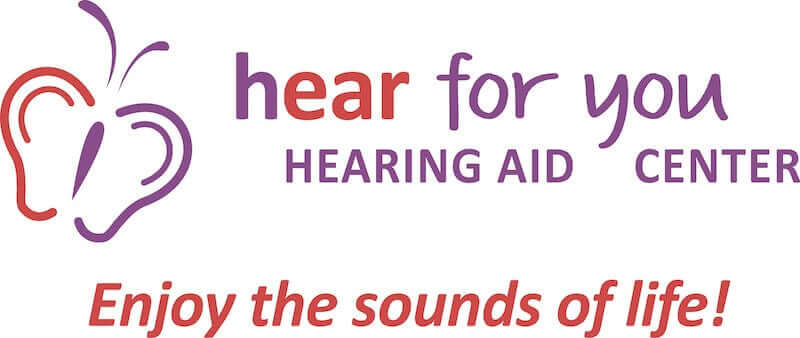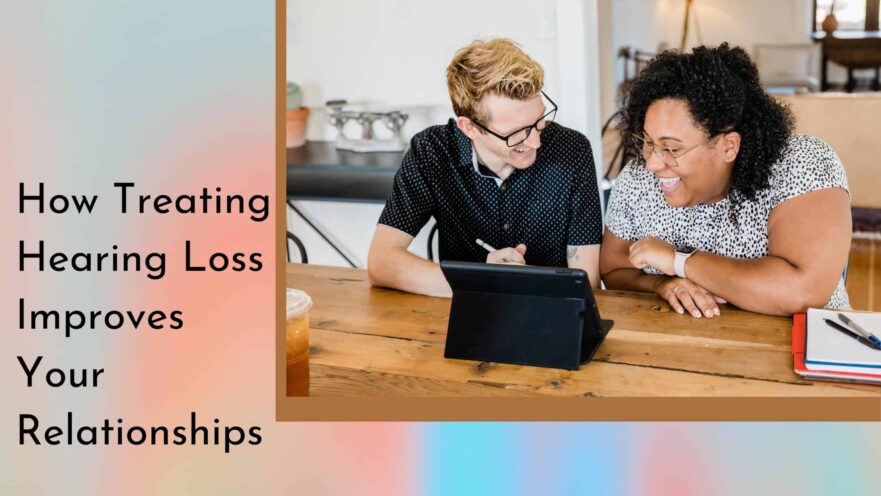Hearing loss stands in the way of healthy communication. If you ask any relationship expert to name one key of a strong relationship, they will be likely to say something like “open communication.” Yet, what exactly does that mean? We know that communication is important, yet what is it about the way the mind and emotions work that makes communication so important? It turns out that at least two types of communication are important to a healthy relationship: disclosure conversations and casual conversations. Each of these types of communication has a world of psychological and physiological research explaining why it’s so important to our feelings of security and connection. Let’s look at each type of conversation, as well as the ways that hearing loss can get in the way.
Disclosure Conversations
In our relationships, we don’t tell everyone everything about ourselves. It would be seen as quite odd and even a warning sign if you approached a stranger and started to disclose your innermost secrets and thoughts. We often build closeness and trust with others through a gradual process of disclosure. When we first meet a new person, it is normal to engage in small talk, connecting over very general ideas and experiences that anyone would understand. Once we have a better sense of where the other person is coming from, we can dip our toes into disclosing something about what we do, our family, or our likes and dislikes.
Only the closest and most trusting relationships are reserved for deep disclosures of personal information, feelings, and thoughts. We allow ourselves to be vulnerable to these close loved ones with the trust that they will not turn away. However, hearing loss can get in the way of this process, putting up a roadblock on the path toward intimacy. If a loved one is trying to disclose something very personal and we aren’t able to make out what they are saying, it can be perceived as resistance. Trust can be broken based on this simple miscommunication, and trust is difficult to restore once broken.
Casual Conversations
With this process of disclosure in mind, you might be curious why casual conversations are important. Research has shown that many relationships have a common pattern of disclosure. We might reach a level of intimacy with a person and find that it has plateaued. This plateau of closeness is not necessarily a bad thing. Our families and communities are based on trust, reliability, and shared experiences. When we have gone through a disclosure process with another person, we can find security in the knowledge of that connection.
Without needing to continually renew these vulnerable bonds, we can rely on one another to hear our thoughts, opinions, and jokes. In a constant process of expectation and recognition, we see that the other person is trustworthy in these small ways. Research has even shown that these casual conversations are just as important as deeply emotional disclosures when it comes to feelings of intimacy. The trouble is that hearing loss can have the worst effects on these casual conversations. If a person mumbles something quietly or calls out from another room in the house with a thought, question, or little joke, hearing loss can get in the way of this casual trust.
Treatment for Hearing Loss and Relationship Health
The good news is that hearing aids can restore the connection that has been lost. Even when hearing loss has come in the way of disclosure and casual conversations, hearing aids can repair that damage. With assistance in place, we can find that the free flow of conversation is restored, and we’re able to talk freely and easily when we need to. Without this assistance, relationships can remain strained, and we can even feel a lack of closeness. Why not encourage your loved one with hearing loss to pursue treatment? By aiding hearing ability, you might not only be helping your loved ones get the information they need. You could also be reestablishing the ability to connect, chat, and share from a deep place of trust. The first step is to seek a hearing test, so why not make your appointment today?

